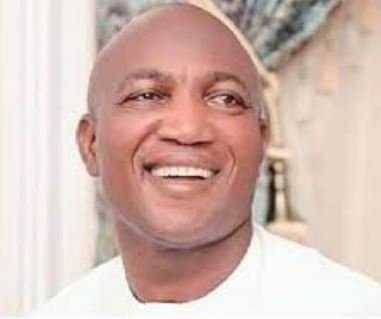
With the nullification of the election of the erstwhile Governor-elect of Bayelsa State, David Lyon by the Supreme Court, as expected, the Peoples Democratic Party (PDP) is jubilant while the All Progressives Congress (APC) is melancholic.
While it is not yet clear whether the nullification was on account of possession of multiple identities or forgery, it is good to pause irrespective of party affiliation and ask if it was the right decision and whether the decision was or is in the interest of our democracy. In doing so, I believe that the first question we should ask ourselves is “What is the purpose of elections”? I believe that the purpose of elections in a democracy is for citizens to elect persons of their choice to govern them. All laws, rules and regulations regarding elections should be interpreted with this core purpose mind.
Section 182(1) j of the Nigerian Constitution provides that no person shall be qualified for election to the office of Governor if he has presented a forged certificate to the Independent National Electoral Commission (INEC). As it is not uncommon for politicians to procure fake NYSC, tax clearance and educational certificates, the provision is necessary and salutary as persons of questionable character and integrity should not be allowed to operate in our political space. The language of the section is very clear and unambiguous. It is the person that presents a forged certificate that is disqualified. However, the Supreme Court held that even though Lyon did not present a forged certificate, he is disqualified because his running mate Degi-Eremienyo did, as their ticket is a joint one which had become “vitiated.” Is this fair to Lyon, his party the APC and most especially the thousands that trouped out to vote for him on election day?
The Supreme Court failed to give Section 182(1) j its simple and natural meaning, and give effect to the core purpose of elections-allowing the will of the people of Balyesa to prevail by not only disqualifying the person whom they held presented a forged certificate but by disqualifying the governor-elect who did not. The argument that because the ticket is a joint one that had become vitiated, is not only contrary to the simple meaning of section 182(1) j, but is a technical argument that violates the will of the Bayelsa people.
The basis of our political and electoral system in Nigeria is that the vote is for the political party and not for the individual. This is confirmed by section 177 (c) of the Constitution which states that a person shall be qualified for election to the office of Governor of a State if he is a member of a political party and he is sponsored by that political party. This is further confirmed by the fact that on election day, what is on the ballot paper is not the picture or name of the candidate but the logo of the political party. It is significant that the provision that a governorship candidate is to contest with a running mate is not in this qualification section of the Constitution which only refers to nationality, age, political party membership and minimum level of education. Section 187 (1) relating to the Deputy-Governor simply enjoins a governorship candidate to nominate a deputy as his associate which David Lyon did and his associate’s nomination remained valid during and after the election until it was nullified by the Supreme Court.
By virtue of our Constitution, it was APC that was voted for in Bayelsa. If the deputy-governor-elect was disqualified, the governor–elect who was unblemished should have been left alone to nominate another deputy. The argument that whatever affects the running mate affects the governorship candidate is not supported by the Constitution and indeed is contrary to the spirit of the provisions of section 181(1) of the Constitution which states that where the Governor-elect is for ANY REASON UNABLE TO BE SWORN IN, his Deputy shall be sworn in. It is submitted that “for any reason” includes disqualification. Furthermore, neither the governor-elect nor his party are forensic experts. If INEC the body charged with the responsibility of conducting elections and verifying certificates is not expert enough, or does not have access to the infrastructure to verify the authenticity of certificates, why should Lyon or his party suffer the consequences? At its level, the Supreme Court should not interpret the law in a way that defeats the purpose of an election, it should do justice to the parties and give effect to the will of the people during an election rather than employing technicalities that defeat that will. To do so is not only unfair and unjust, but is disruptive as a curfew has had to be declared in Bayelsa with soldiers now out in the streets.
Such decisions by the Supreme Court in the Imo governorship election, and now in Bayelsa affect the perception and confidence of people in our justice system not just in Nigeria but internationally with potentially serious consequences for our country.
A few months ago, Nigerians were aghast and angry to learn that a UK court had awarded damages in the sum of $9.6 billion amounting to 20% of our foreign reserves against us to a small Irish private company-P & ID. P&ID could not have happened but for Clause 20 in the contract with Nigeria which provided that the disputes were to be resolved in London rather than in Nigeria where the subject matter of the contract was located. Such clauses which have virtually become standard in international contracts signed by Nigeria and Nigerians is a reflection of the lack of confidence in our justice system. Although the justice systems in the developed countries work, they are not without their biases.
As the National Assembly prepares to amend the Constitution, it should take a second look not just at section 182(1) j, but the whole Constitution with a view to inserting an emphatic general proviso to the effect that where a person is disqualified as a result of non-compliance with certain provisions of the Constitution, a person who is not guilty of non-compliance shall not be affected by the disqualification. With such a proviso, where the deputy-governor–elect is disqualified, the governor–elect will nominate another deputy, and where the governor-elect is disqualified, the deputy –governor elect becomes the governor.
This will be in consonance with section 181(1) of the Constitution which provides that if a person elected as governor dies before taking his oath of office, or is unable FOR ANY REASON WHATSOEVER TO BE SWORN IN, the person elected with him as deputy- governor shall be sworn in as governor and he shall nominate a new deputy-governor who shall be appointed by the governor with the approval of a simple majority of the House of Assembly in the state.
In the spirit of this section, the Supreme Court should simply have ordered that David Lyon be sworn in and allowed to nominate a new deputy subject to the approval of the Bayelsa State House of Assembly.
By Senator Akinyede, Constitutional lawyer, was in the Senate from 2007 to 2011













